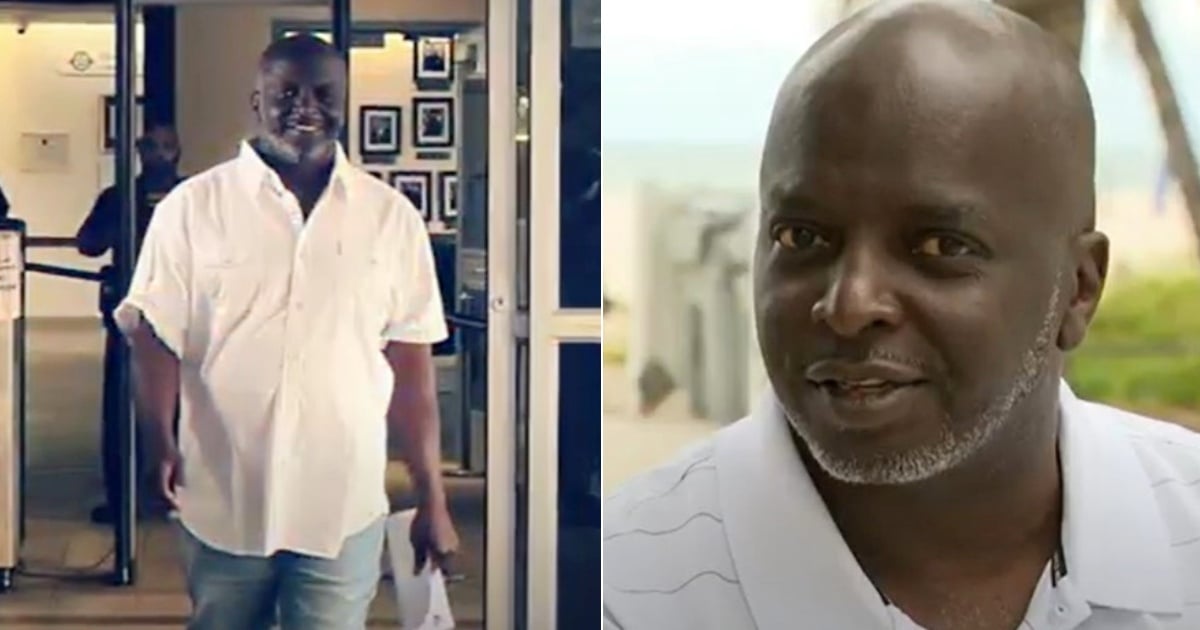Sidney Holmes, a resident of Broward County, Florida, has been awarded $1.7 million by the state after spending over three decades behind bars for a crime he did not commit. This case has sparked significant outrage, not only because of the lengthy wrongful imprisonment but also due to the systemic failures within the judicial system that led to his conviction without solid evidence.
Flawed Justice: A Sentence Built on Weak Evidence
In 1988, at just 23 years old, Holmes was sentenced to 400 years for allegedly being the getaway driver in an armed robbery near Fort Lauderdale. The prosecution's case relied solely on a visual identification of a yellow Oldsmobile, which was later deemed unreliable.
Decades later, Broward County State Attorney Harold Pryor acknowledged the error in the identification process. "The description of the actual driver was vague, essentially only identifying a yellow car, which was one of the most common vehicles in the United States at that time," Pryor explained.
Despite having an alibi—Holmes claimed he was celebrating Father's Day with his family—he was convicted by a jury and imprisoned. "I had no knowledge of any robbery... I was at home," he told NBC in an interview.
The Impact of Incarceration: Loss and Growth
During his imprisonment, Holmes faced profound personal losses, including the deaths of his father and grandmother, and missed the upbringing of his daughter, who was only three when he was incarcerated. Nevertheless, he turned his imprisonment into an opportunity for personal growth, earning degrees in theology, public relations, legal services, and a certification in computer science.
In March 2023, a judge overturned his conviction, and the charges were dismissed by the State Attorney's office following a review by the Conviction Review Unit.
Legal Hurdles to Compensation
Even after being exonerated, Holmes was not automatically eligible for financial compensation. While Florida law provides $50,000 for each year of wrongful imprisonment, it excludes individuals with prior criminal records, which was the case for Holmes. This led to public outcry and legislative action, resulting in the SB10 bill, which was unanimously passed and signed by Governor Ron DeSantis.
Now 59, Holmes will receive the $1.7 million compensation for the 34 years he was unjustly incarcerated. "No amount of money can ever cover all the memories. The time you lost... I lost my father," Holmes expressed emotionally to NBC.
Embracing Freedom and Advocating for Justice
Since his release, Holmes is adjusting to a world vastly different from the one he left in the 1980s. "It's amazing, because all they had back then was a big beeper," he joked about his first day of freedom. His first night outside prison was filled with significant moments: sleeping in a real bed, hugging his daughter and granddaughter, and enjoying a meal at Olive Garden.
Holmes is currently working on a book about his experiences and is establishing a foundation to support those wrongfully convicted. "I want to tell people that if they're innocent, if they haven't done anything, never give up," he declared, highlighting his dedication to advocating for others' rights.
His story is reminiscent of Joaquín Ciria, a Cuban who was released in California in 2022 after spending 32 years in prison for a crime he did not commit. Both cases underscore the urgent need to reform judicial processes, evidence standards, and compensation avenues for victims of wrongful convictions.
Understanding Wrongful Convictions and Compensation in Florida
What led to Sidney Holmes' wrongful conviction?
Sidney Holmes was wrongfully convicted due to an unreliable visual identification of a yellow Oldsmobile, which was the basis for his prosecution as a getaway driver in an armed robbery.
How did Florida compensate Holmes after his exoneration?
After being exonerated, Holmes faced legal challenges for compensation due to his prior criminal record. A specific bill, SB10, was passed to award him $1.7 million for his 34 years of wrongful imprisonment.
